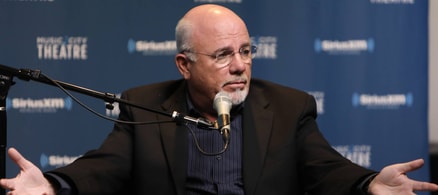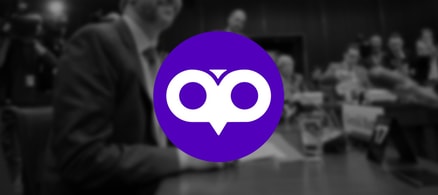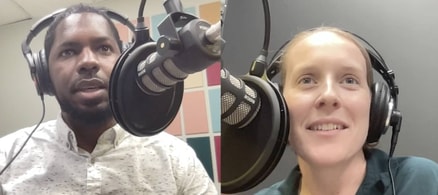What is a financial MLM scheme?
Most of us are familiar with MLM schemes (aka “direct sales” or “network marketing”). These companies rely on independent consultants (usually someone you went to school with) to push alleged immune-boosting essential oils or shakes that help you drop 20 pounds.
However, MLMs haven’t just cornered aspects of the wellness market. Now, they’re selling financial products, too. And these companies aren’t new. Some bigger financial MLMs have been selling financial products like mutual funds and annuities since the 1970s. Like any MLM, when you buy their product, the rep receives a commission, but so does the person who recruited them and their recruiter’s recruiter, and so on.
While on the subject of financial scams, be wary of the crop of online influencers selling financial courses. It’s not hard to spot these posts. They feature busty babes or guys in dapper suits posing next to a sports car who has the secrets to #financialfreedom. And with enough #hustle, you could enjoy the #InvestorLife, too.
While on the subject of financial scams, be wary of the crop of online influencers selling financial courses. It’s not hard to spot these posts. They feature busty babes or guys in dapper suits posing next to a sports car who has the secrets to #financialfreedom. And with enough #hustle, you could enjoy the #InvestorLife, too.
How to spot an MLM scheme: questions to ask yourself before investing
We are not saying all MLMs are scams. Under Canadian law, if they’re selling you a product or service, then they’re considered legit businesses. However, here are some questions to ask yourself before investing your money:
1. What sort of credentials does the person offering this product have?
MLMs generally rely on their existing representatives to recruit other people as part of their “downline.” This means anyone with a pulse could land themselves a position as an independent rep for a financial MLM. Ask yourself and them what sort of credentials they have. In Canada, individuals who sell financial products, including mutual funds, securities, and insurance must meet certain educational and employment requirements to be licensed. When buying mutual funds, you want to deal with a person who has done a Canadian Securities Course (CSC) or Investment Funds in Canada (IFC) course. While you’re at it, do a Google search on the company to see if there are any red flags, such as current or past lawsuits.
2. What are they promising you?
Before you invest in a financial product, ask what the return on investment is, then compare it to what’s available on the market. Is it on par with the return from other mutual funds? Or are their rates of return two, or three times what reputable financial products deliver? Similarly, before signing up for a digital financial scheme, ask for research or materials that prove their claims are credible. If anyone is promising things like “guaranteed high returns” with “no risk!” consider yourself forewarned.
3. Do you feel pressured to invest?
It can be especially challenging to turn down an investment opportunity when it’s a family member or good friend pushing a financial product on you. That’s because MLM recruits are usually encouraged to sell to their “warm market.” The cold hard truth is it’s your cold hard cash. You have a right to invest it how you see fit.
What to do before you sign up with an MLM
MLMs are a mixed bag. Some are reputable with long track records, while others have questionable reputations that should be noted. Protect yourself by doing your homework and taking these steps.
- Research the business. Check different websites for reviews and first-hand experiences. Look at numerous sources. Is there a common denominator? A common complaint that keeps coming up? If something seems fishy, walk away.
- Get the full story. Beware of multi-level marketing plans that promote only their highest income earners. It’s an unrealistic, sugar-coated representation of what can actually be earned.
- Read the fine print. Know that MLMs must disclose the compensation actually received, or likely to be received, by a typical participant. If you can’t readily find this information, then walk away.
- Ask about compensation plans. With these plans, MLM companies offer a financial incentive to recruit new members. It makes your participation a money-making proposition for the person trying to get you to sign up. That makes it difficult to get unbiased answers from the recruiter.
- Inquire about stock obligations. You don’t want to get stuck with stock. Steer clear of MLMs that don’t have a reasonable buy-back guarantee or refund policy, allowing you to return your extra products when you decide to end your career with that company. If it doesn’t provide details on that policy proactively, ask to see it. Plan operators have to tell you about it. Also, watch out for any company that tries to force you into buying an excessive quantity of products.
- Be honest with yourself. Are the promises being made seem too good to be true? Don’t get taken in by the allure of “get rich quick” schemes. These plans may seem an easy way to wealth, but you’ll end up doing as much work as any other job.
The bottom line: should you consider investing?
You know what they say, “If it looks like a duck, swims like a duck, and quacks like a duck…” If someone is pushing an investment opportunity on to you that sounds too good to be true, it probably is. The key is to check out opportunities carefully. Some people do quite well when they sign on with an MLM company. Some have long track records and are credible. Others are not and leave those participating in them with less money than when they started. That underscores the importance of taking the time to carefully assess each opportunity and exercise caution, and due diligence, before you jump in.
A more secure strategy? Put your hard-earned bucks into a TFSA or RRSP investing account instead. With a risk-appropriate, diversified portfolio of low-cost ETFs and index funds at a robo-advisor or an online brokerage, you’re setting yourself up for success. Historically, the S&P 500 index fund has historically produced total returns in the 9% to 10% range. Likewise, the Canadian stock market provided an average annual return of approximately 10% from 1970 through 2015. It’s the strategy that billionaire Warren Buffett backs and which Nobel-prize-winning economists have recommended for decades.
The bottom line: if you have money to invest, you don’t need to buy financial products from a rep (even if that rep is your beloved Aunt Mildred). It’s much safer to start investing in ETFs, index funds, and stocks, and you can easily do it yourself. FinTech has made investing online in Canada online investing not only accessible but affordable, and with a reputable robo-advisor or online brokerage, you’re not playing “Russian roulette” with your life savings.
More: The best robo-advisors in Canada 2022: a complete guide to robo-investing





